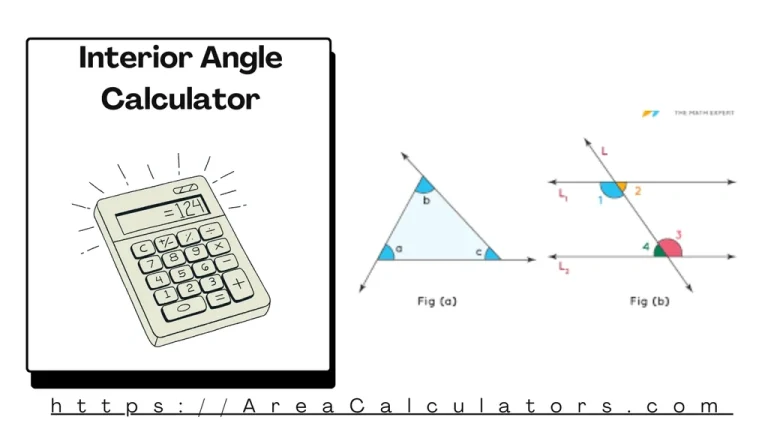Well Volume Calculator
To determine the volume of a well, multiply the area of the circular cross-section by the height difference between the top and bottom measurements of the well.
To determine the volume of a well, multiply the area of the circular cross-section by the height difference between the top and bottom measurements of the well.
The Well Volume Calculator is a practical tool for calculating the volume of a well based on its dimensions. Whether you’re assessing water storage in a well, calculating oil well capacity, or determining volume for environmental studies, this calculator provides accurate results.
WV = π × r² × (H₂ − H₁)
| Variable | Description |
|---|---|
| WV | Volume of the well |
| r | Radius of the well |
| H₂ − H₁ | Height difference in the well |
Example 1: Calculating Well Volume in Liters
| Step | Value |
|---|---|
| Radius (r) | 1 meter |
| Height Difference (H₂ − H₁) | 20 meters |
| Volume (WV) | π × 1² × 20 = 62.83 m³ |
| Convert to liters | 62.83 × 1,000 = 62,830 L |
Example 2: Calculating Well Volume in Gallons
| Step | Value |
|---|---|
| Radius (r) | 2 feet |
| Height Difference (H₂ − H₁) | 50 feet |
| Volume (WV) | π × 2² × 50 = 628.32 ft³ |
| Convert to gallons | 628.32 × 7.48 = 4,699.76 gal |
The Well Volume Calculator is a versatile tool that helps determine the volume of a well, whether for water, oil, or other purposes. It aids in calculating the storage capacity of wells in units like gallons or liters, depending on the user’s requirements.
This tool is beneficial for those managing water supply systems, evaluating well performance, or planning for irrigation and industrial applications.
It can handle various well shapes and dimensions, offering insights into both wet and dry wells. By inputting parameters such as depth, diameter, and casing size, users can estimate the total volume efficiently.
Applications of the Well Volume Calculator extend to understanding groundwater capacity, planning well maintenance, and managing resources for households, farms, or industries.
In essence, the Well Volume Calculator is an essential resource for accurately gauging well capacity. It simplifies calculations, aiding in efficient resource management and informed decision-making for diverse water and oil applications.
![Water Tank Capacity Calculator [ Storage Tank Volume & Size ] 1 Water tank capacity calculator illustration, features a calculator and a cylindrical water tank diagram to determine volume. Ideal for calculating water tank size and area measurement tools for precise capacity estimations.](https://areacalculators.com/wp-content/uploads/2025/07/water-tank-capacity-calculator-768x432.webp)
To calculate the water tank capacity, multiply the area of the circular base (π × radius²) by the height or length of the tank. Ensure all dimensions are in consistent units, such as meters or feet, for accurate results. The Water Tank Capacity Calculator is an essential tool for determining the volume of water storage…
Subtract your mattress height from your shoulder width to estimate the ideal pillow height for optimal support. The Pillow Height Calculator helps you determine the right pillow height for proper neck and spine alignment during sleep. Pillow height varies based on sleeping position, mattress firmness, and individual body proportions. Using the correct height reduces neck…
15 / 100 SEO Score Today, we’ll explore the ingenious 120 Rule Calculator—a simple yet powerful tool to help you decide about your investments portfolio. Use basic and advanced calculator for instant calculations! Formula: The formula is: S=120−AS = 120 – A Variable Meaning SS Percentage of Portfolio in Stocks AA Your Age Solved Examples:…
To convert milliliters (mL) to pounds (lbs) of water, multiply the volume in milliliters by the density of water (1 g/mL) and then convert grams to pounds. The mL to Lbs Water Calculator simplifies the conversion of water volume in milliliters to weight in pounds. This conversion is especially useful in cooking, scientific experiments, or…
To calculate Gross Words Per Minute (GWAM), divide the total words typed by the time taken in minutes. The GWAM (Gross Words Per Minute) Calculator is a valuable tool for typists, professionals, and students aiming to evaluate their typing speed. GWAM measures overall productivity without accounting for errors, offering a baseline for improving typing efficiency….

Multiply (n−2)(n – 2) by 180 to find the sum of the interior angles of a polygon with nn sides. The Interior Angle Calculator helps determine the sum of interior angles for polygons of any number of sides. Understanding interior angles is essential in geometry, aiding in calculations for construction, design, and academic studies. This tool…